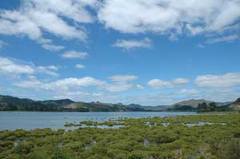Waikato Regional Council’s catchment services committee has backed a legal appeal against a hearing committee’s decision restricting the amount of mangroves that can be cleared at Whangamata to 16 hectares of new removal and 6.5 hectares of tidy up work.

The development follows last year’s only partially successful application – by the council’s catchment services group – for a consent covering a total of 31.5 hectares of new removal and 6.5 hectares of tidy up clearance… The hearing committee which granted the more limited consent was made up of independent commissioners.
The decision at today’s committee meeting to back an Environment Court appeal, seeking approval for the full amount of clearance originally sought, followed advice that Forest and Bird was appealing against the limited permission for clearance granted by the hearings committee. That hearings committee decision took into account advice from the council’s resource use group recommending against the granting of the full catchment services group application.
The catchment services committee decision to back a catchment services appeal – which could cost as much as several hundred thousand dollars – also took into account advice that catchment services would probably have to spend about that much anyway defending Forest and Bird’s appeal.
In another development, the committee was given a clearer picture of the potential long-term costs of mangrove clearance at Whangamata. A recent estimate suggests the costs could be as much as $1.1 million over the longer-term life of a mangrove removal consent. Any legal costs associated with the appeal could be on top of that.
Initially any costs of mangrove clearance at Whangamata were due to be met by a combination of local and Coromandel zone rates. However, catchment services staff told today’s meeting that there would be consideration of a new funding policy which would take into account the wider regional benefit of harbour and estuary management.
Committee member Cr Simon Friar, who represents Thames-Coromandel, said the small Whangamata community was frustrated at the time being taken to go through the consenting process and is concerned at escalating costs.
The committee backed his suggestion for staff to consider reviewing the status of mangroves in the regional council’s coastal plan. Currently, mangroves have a significant amount of protection as a native plant under the plan, which reflects national coastal policy.
It is unclear at this stage when any Environment Court appeal would be heard.
In the meantime, no mangrove clearance can take place under the consent granted by the hearings committee until the appeal process is resolved.

